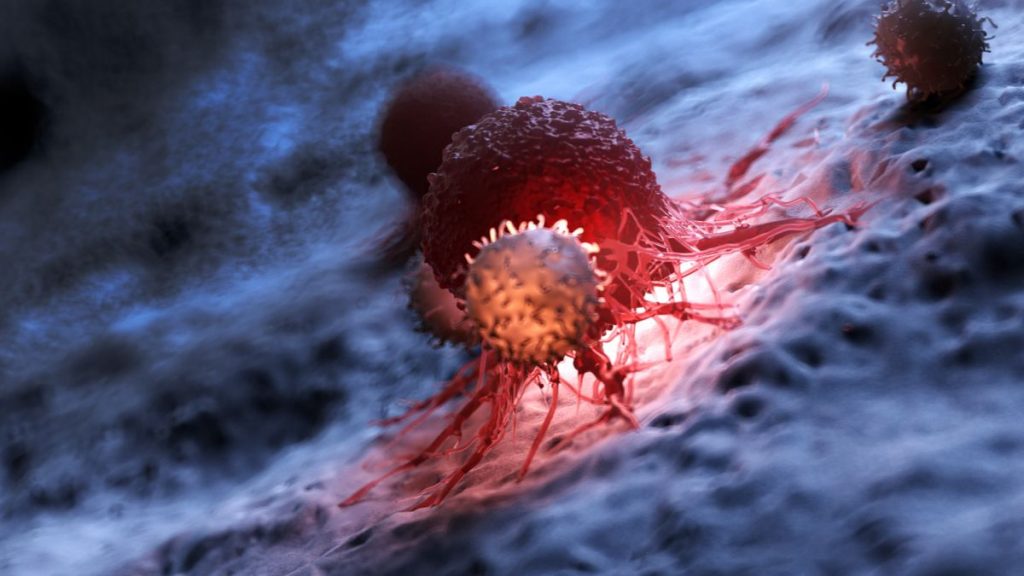In collaboration with the Australian biotechnology company Imugene, specialists from the City of Hope cancer research center have announced the start of clinical trials for an experimental “cancer-killing” virus.
Target and eradicate cancer cells without harming healthy cells
Called CF33-hNIS (or more simply Vaxinia), the drug candidate is what is called an oncolytic virus, which is a genetically modified virus designed to selectively infect and kill cancer cells while sparing healthy cells. In this case, the modified smallpox virus enters the cells and duplicates. Eventually, the infected cell bursts, releasing thousands of new virus particles that act as antigens, prompting the immune system to attack nearby cancer cells.
Previous research in animal models had shown that the compound did indeed mobilize the immune system to hunt and destroy cancer cells, but so far no tests had been conducted in humans.
” Oncolytic viruses can also stimulate the host’s immune defenses so that they are more responsive to other immunotherapies “, Explain Daneng Li, oncologist supervising these first clinical trials. ” We believe that CF33-hNIS has the potential to significantly improve the outlook for our patients.. »

The version of the virus currently being tested produces the human symport of sodium iodide (hNIS)a protein that allows researchers to visualize and monitor viral replication, and provides an additional way to damage cancer cells via radiation therapy.
First clinical trials
If an American patient has already benefited from a first injection, a total of 100 adult participants with metastatic or advanced tumors, having already tried at least two lines of standard treatment, will be recruited. Subjects will initially receive low doses of the treatment by direct (intratumoral) or intravenous injection and will be followed closely to assess the safety of the CF33-hNISits tolerance and possible adverse effects.
These will then be gradually increased in order to determine the dosage and the frequency of optimal administration of the treatment. In the event of conclusive results, additional tests will make it possible to study the association of the CF33-hNIS with the pembrolizumaban antibody treatment already used in cancer immunotherapy.
Secondary measures (including assessment of the capacity of the CF33-hNIS to reduce the size of the tumors treated) will be analyzed later, but as the trials are expected to last two years and be conducted at different sites, it will probably be some time before the detailed data are published.

A potential new tool to fight tumors
Promising preclinical trials do not necessarily guarantee similar results in humans, so caution should be exercised, but if the drug proves to be safe and well tolerated, we could be in the presence of a powerful new tool to fight tumors.
” Our oncolytic virus is a game-changer due to its potency and ability to recruit and activate immune cells “, had declared Susanne Warneran oncologist who has studied the effects of CF33 in mice in 2020.” It trains the immune system to target a specific cancer cell, which means that if a similar cancer cell reappears, the immune system will be ready to act. »
Currently, there is currently only one approved viral oncolytic treatment for cancer. Called Talimogene laherparepvec (T-VEC)it is a modified version of the herpes simplex virus used in the treatment of melanoma.
[related_posts_by_tax taxonomies=”post_tag”]
The post An experimental virus capable of eliminating cancer tested on humans for the first time appeared first on Gamingsym.

